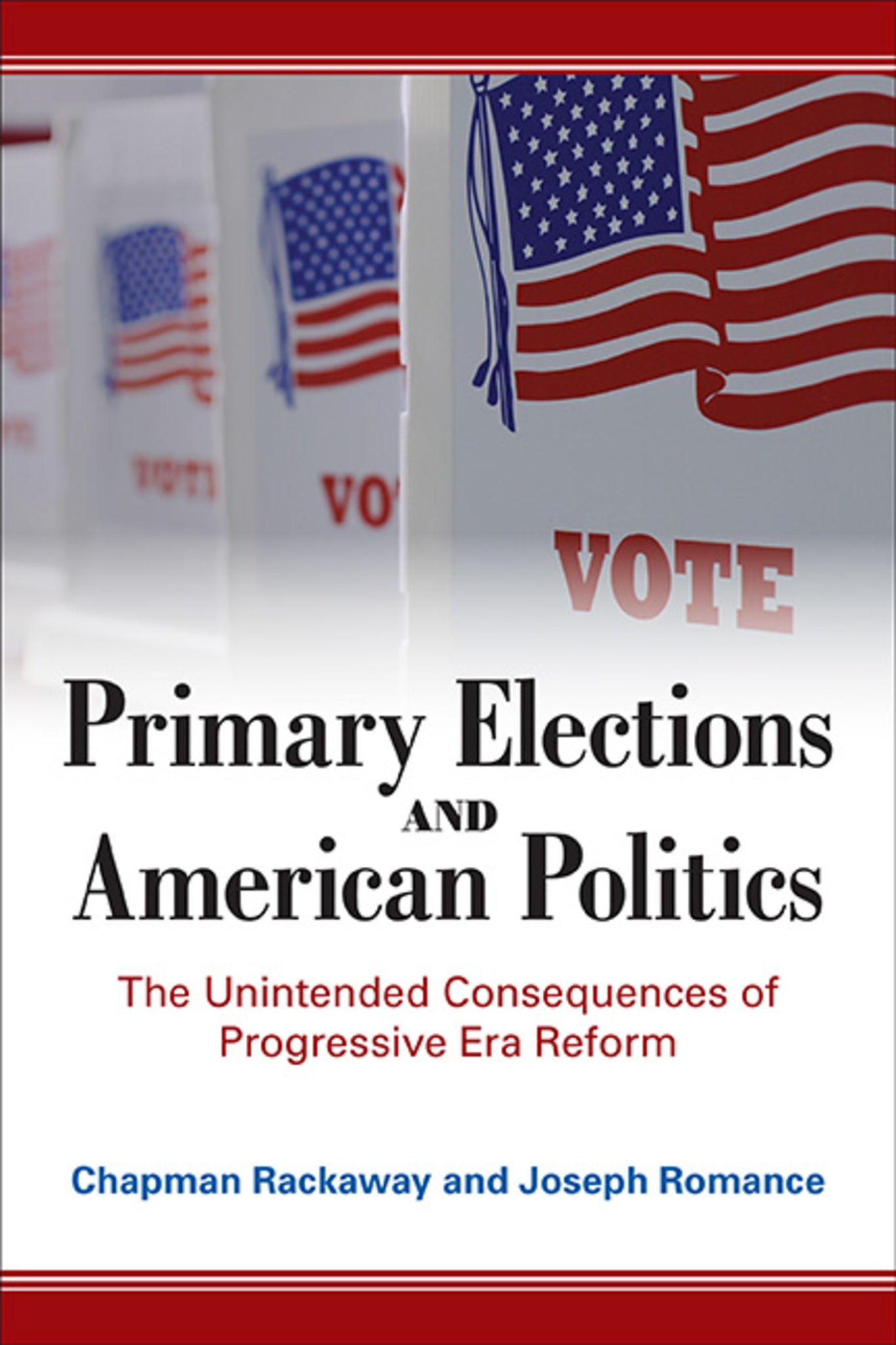We're sorry. An error has occurred
Please cancel or retry.
Primary Elections and American Politics

Some error occured while loading the Quick View. Please close the Quick View and try reloading the page.
Couldn't load pickup availability
- Format:
-
02 April 2023

Argues that Progressive Era reforms had the counterintuitive effect of weakening political parties and their role in representative government.
The last twenty years has seen a series of changes to American party politics: polarization, negative partisanship, decreasing voter turnout, and decreasing faith in elections and government. In Primary Elections and American Politics, Chapman Rackaway and Joseph Romance trace the origins of these and other problems to one of the most controversial reforms in American political history: the direct partisan primary election. With a comprehensive history of the primary election, the authors link the rise of primaries to the many political ills the nation faces today. They argue that the Progressives who created the primaries mistook direct democratic reforms, like the primary, for participatory democratic reforms like deliberative polling or participatory budgeting.


"As Rackaway and Romance outline, mistrust of parties runs throughout American political history. Yet, they advance provocative arguments that weakening parties might have weakened democracy and that democracy's problems are not always solved by more democracy. They argue that the Progressives' push for direct primaries was built around a faulty premise about citizen participation. Further, by focusing on the ills of parties, Progressives missed seeing their valuable role as linkage institutions that make it easier for citizens to participate." — Laurie L. Rice, coauthor of Web 2.0 and the Political Mobilization of College Students
1. Making Parties into Machines
2. Parties Ascendant
3. What the Progressives Were For
4. Why the Machines Were Targeted
5. The Early Primary Era
6. The Pivotal 1968 Democratic National Convention
7. What Direct Primaries Have Done
8. The Problem with Primaries
9. Conclusion
Notes
Bibliography
Index



